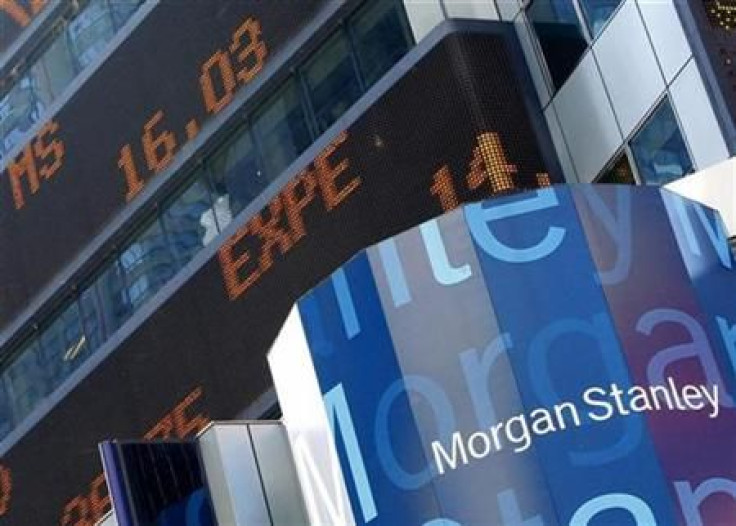Morgan Stanley Getting Hit From All Sides

Having a horrendous week? Can't wait for Friday?
If you happen to be a global executive at New York-based banking giant Morgan Stanley (NYSE: MS), the answer to those questions might be yes and yes.
Following a brief reprieve late Thursday last week -- after the senior debt credit rating on the financial institution was downgraded two notches by Moody's, rather than the three notches that had been anticipated -- the bank has had a terrible week, becoming embroiled in not one, but two, international scandals and getting dumped by the sell-side analysts at Goldman Sachs Group Inc. (NYSE: GS).
First, the scandals. On Tuesday, news broke that the head of the bank's German unit was taking an indefinite leave over his involvement with a local politician in a controversial 2010 deal. Dirk Notheis, the German unit head, was revealed in leaked emails to have pressured his longtime friend, Steffen Mappus, to push through the purchase of a local power company by the German state Baden-Wuerttemberg. Mappus was governor of the state when the deal was taking place.
The emails, released because the very state government is now investigating if Mappus overpaid during the deal, show Notheis both being imperious and dismissive, even going as far as calling Chancellor Angela Merkel -- arguably the most powerful woman in the world at the moment -- by the condescending nickname Mom.
That little fiasco will likely affect Morgan Stanley's reputation in Germany, where it is a leading financier with tight relationships in industry and government. But at least it won't cost millions in the short run.
The same can't be said for the other scandal, in Brazil, where the government is suing the bank for 113 million reais ($54 million) over a botched IPO. Specifically, the Brazilian government is claiming the American financial giant, which underwrote the public offering of local lender Banco Cruzeiro do Sul, helped that latter institution fudge its accounting to appear healthier than it actually was.
The Brazilian regulator in charge of banking insurance was forced to nationalize collapsing Cruzeiro do Sul just two weeks after it went public, a fact that makes the bumbling New York public offering of Facebook Inc. (NYSE: FB) in May -- for which Morgan Stanley is also taking the brunt of the flak -- look pristine by comparison.
It's not just banking regulators in Brazil and Germany that are mad at Morgan Stanley at the moment either. Back in the United States, there are reports that the Federal Deposit Insurance Corporation (FDIC) is quietly seething at the bank for its internal strategy of managing derivative risk by moving instruments to its bank subsidiaries, still within the wider bank structure but away from FDIC supervision.
With so much going against the bank -- even after the reprieve from Moody's, it is the lowest-rated among its large American bank peers -- it's no wonder Goldman Sachs analysts chose to downgrade their recommendation on Tuesday, moving the bank out of their conviction buy list and assigning a neutral outlook on MS shares. Goldman cited the Moody's downgrade, which it sees eating into the bank's fixed-income trading revenue, as the reason.
All of that is not good news for Morgan Stanley shareholders, who have seen their holdings slaughtered over the past three months, dropping over 36 percent since March 27. By comparison, shares of JPMorgan Chase and Co. -- which saw a huge sell-off after the bank admitted it would report billionaire derivatives-linked losses during the quarter and whose CEO was dragged to testify in front of Congress on the matter -- are down 22.7 percent for the period. The wider KBW Bank Index of major U.S. banks is down 12.2 percent.
© Copyright IBTimes 2024. All rights reserved.











